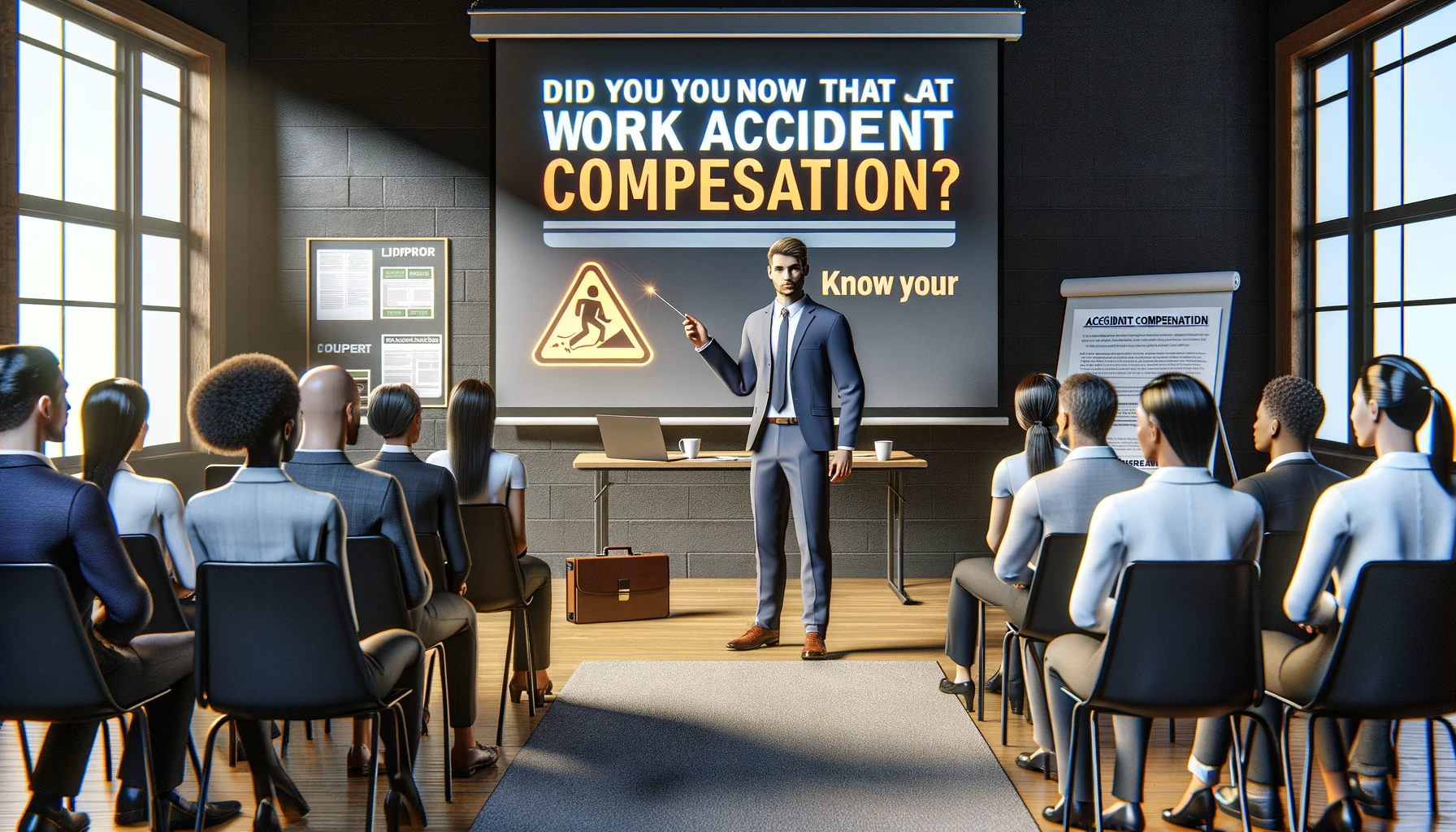When you're injured on the job, it's a tough break. You're hurt, you need time to recover, and the last thing you want to worry about is whether your employer will step up and cover the costs associated with your work accident. Unfortunately, some workers find themselves in a bind when their employer refuses to pay for their work accident. But don't worry, I've got your back. In this comprehensive guide, we'll walk through what you need to do to make sure you get the unpaid work injury compensation you rightfully deserve.


Recognizing Employer Liability for Workplace Accidents
To truly understand how to navigate the aftermath of a workplace accident, it's essential to first grasp the concept of employer liability for such incidents. When you find yourself injured on the job, it's not merely a stroke of bad luck. Your employer has a fundamental duty to ensure your safety in the workplace. If they fail in this responsibility, they can be held accountable for your injuries. This is where your knowledge of your rights becomes paramount. It's critical to realize that you may be entitled to compensation for your unpaid work injury, and this compensation is based on the principle of employer liability for workplace accidents.Understanding Workers' Rights for Unpaid Wages After Injury
After an injury at work, you're faced with a complex web of legal rights and entitlements. As a victim of a work-related accident, you have rights protected by labor laws, which ensure you receive fair compensation for your injuries. These rights encompass a broad spectrum, including reimbursement for lost wages, coverage for medical expenses, and potentially more, depending on the gravity of your injury. Understanding the intricate tapestry of these rights is crucial to ensuring you receive the compensation you rightfully deserve.Immediate Steps to Take After a Work Accident
The moments following a work-related accident can be chaotic and disorienting. However, it's imperative to act swiftly and decisively. Your initial actions can significantly impact your ability to secure the compensation you deserve. One of the first things you must do is meticulously document every aspect of the incident. This documentation serves as a critical piece of evidence for your claim. Furthermore, it is essential to promptly report the accident to your employer. Timely reporting is not only a legal obligation in many cases but also crucial for establishing a clear timeline and a solid foundation for your claim. Equally vital is seeking immediate medical attention. Your well-being is paramount, and medical records serve as compelling evidence of your injuries and their connection to the workplace accident.
Reporting Unpaid Work Injury Claims
When faced with an uncooperative employer who refuses to acknowledge their responsibility, it's time to escalate the matter. Initiating a workplace injury claim process is often the next logical step. This typically begins with filing a report with your state's workers' compensation board or the equivalent agency. It's essential to maintain a meticulous record of all communications with your employer regarding the wage dispute that has arisen as a result of your work accident. This paper trail can be invaluable as you navigate the complexities of your claim.Seeking Legal Advice for Non-Payment of Work Injury
Sometimes, despite your best efforts, you find yourself hitting a wall in your pursuit of unpaid work injury compensation. This is when enlisting the expertise of a legal professional becomes not just beneficial but crucial. Seeking legal advice for non-payment of work injury can be a game-changing decision. A lawyer specializing in workers' compensation can be your staunch advocate and guide you through the intricate process of dispute resolution. Their expertise ensures you're not being shortchanged and that your rights are protected to the fullest extent of the law.Exploring Remedies for Unpaid Workplace Injury
It's essential to understand that you are not without options if your employer remains uncooperative or obstinate in acknowledging their liability. There exists a range of remedies for unpaid workplace injuries that you can explore. One avenue is pursuing unpaid work injury settlements, which may involve negotiations with your employer or their insurance provider. In cases where negotiations fail to yield a satisfactory outcome, taking your claim to court might be necessary. You deserve fair compensation for the hardships you've endured due to work accidents, and the legal system offers avenues to ensure you obtain it.Taking Legal Action Against Employer for Injury Non-Payment
When dealing with an employer who refuses to acknowledge their liability and pay for the consequences of your injury, it may become necessary to take more assertive legal action. This could involve filing a lawsuit against your employer or initiating arbitration proceedings, depending on the terms of your employment contract. These actions are not taken lightly but can be powerful tools in holding your employer accountable for their responsibilities.Understanding Workers' Compensation Benefits and Dispute Resolution
It's essential to remember that you have rights to unpaid workers' compensation benefits. There is an entire dispute resolution process designed to support you in your pursuit of rightful compensation. Do not hesitate to stand up for your rights and push for the compensation you need to regain your footing after an injury. Understanding the intricacies of the workers' compensation system and how it can benefit you is vital as you navigate this challenging journey.
Conclusion
Dealing with an employer who refuses to pay for a work accident is undeniably stressful. However, it's crucial to remember that you are not powerless in this situation. By documenting everything, promptly reporting the injury, seeking immediate medical attention, and seeking legal assistance when needed, you can effectively fight for your rights and secure the unpaid work injury compensation to which you are entitled. This pursuit is about more than just monetary compensation; it's about ensuring your well-being after an injury and holding your employer accountable for their obligations to you and your fellow workers.Look for an attorney who has the right legal resources for your legal needs.
Contact us here on the Warmuth Law website or through our hotline 888-517-9888.











